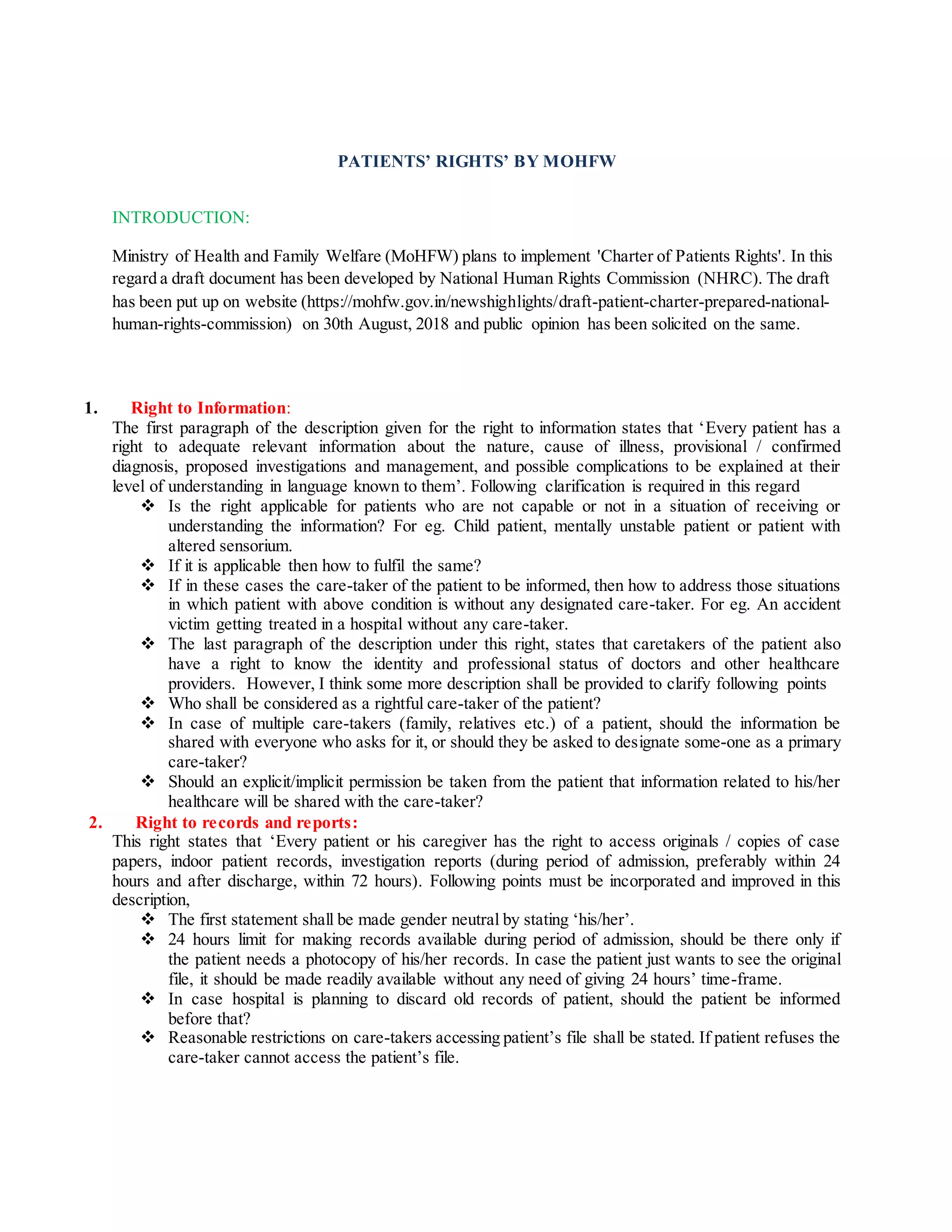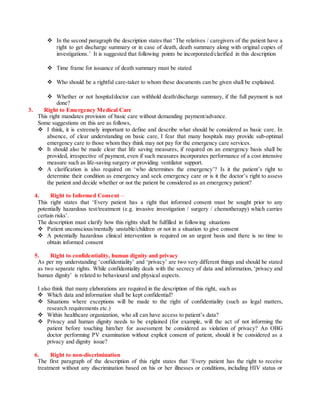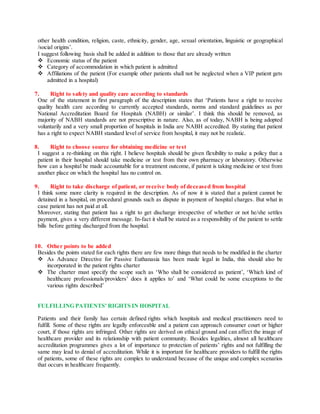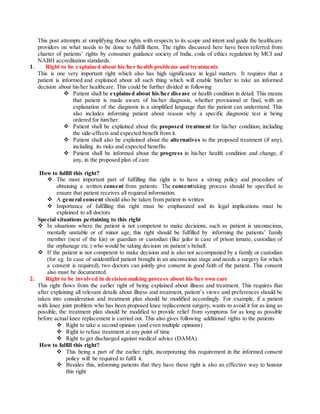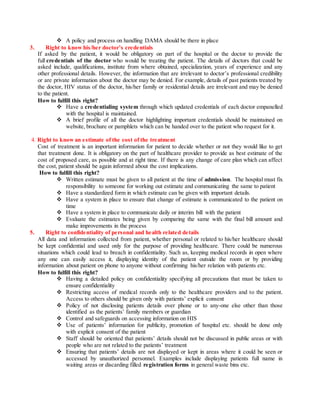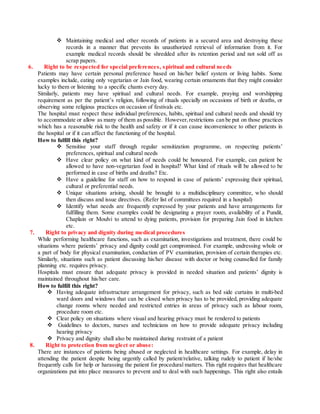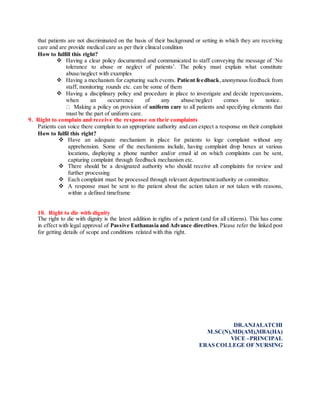The document discusses a draft "Charter of Patients' Rights" published by the Ministry of Health and Family Welfare in India. It provides feedback and suggestions to clarify and strengthen several rights outlined in the charter, including the right to information, access to medical records, emergency care, informed consent, confidentiality, non-discrimination, safety standards, choice of treatment sources, and discharge from the hospital. The feedback addresses how to fulfill patients' rights for those incapable of consent, situations requiring urgent care without consent, and other complex healthcare scenarios. Clarifying the charter aims to better protect patients' rights while accounting for practical realities in healthcare.
